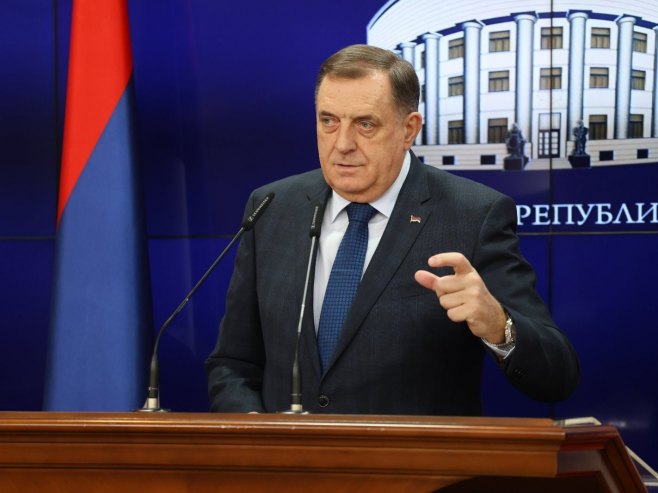The President of the Republic of Serbia, Aleksandar Vučić, in response to a statement from the US Embassy in Sarajevo about the All-Serb Assembly, posed a seemingly simple but very inconvenient question for the US Embassy: “Where does it say?” Although initially related to property, this question applies to many other competencies in Bosnia and Herzegovina (BiH), which have been usurped and taken from Republika Srpska without any legal basis, primarily by the will of the Americans, highlighted Milan Tegeltija, advisor to the President of Republika Srpska, in his column.
We present the column in its entirety:
A Response Without an Answer
The US Embassy, in its response to the President of the Republic of Serbia, did not actually provide an answer to the simple question, “Where does it say that property belongs to BiH?” They did not answer because there is no answer! Instead of referring to a document, provision, or article of the Dayton Agreement or the BiH Constitution and specifying where it is written, the US Embassy refers to a lecture by O’Brien at the Faculty of Political Sciences in Sarajevo. However, even O’Brien, in that lecture, does not present documents or provisions that specify where it is written; rather, he makes general claims, referring to continuity. This continuity is merely O’Brien’s arbitrary interpretation of something that is not written, rather than what is explicitly stated in the Dayton Agreement. The Dayton Agreement, in Article 1, states that the continuity of BiH exists solely in terms of international subjectivity, recognition, and its seat at the United Nations.
Nothing more, nothing less. For everything else, the Dayton Agreement (in the same Article 1) states that it has been restructured and adapted to the new reality, i.e., the new structure of BiH established by that international agreement, including issues of property. O’Brien also uses the pseudo-argument of the succession agreement of the former Yugoslavia, although the succession of the former SFRY did not address the issue of internal relations within BiH or the regulation of ownership rights over public property. This was left to the successor states themselves, which in the case of BiH is regulated by another international document, the Dayton Agreement, making it a classic manipulation.
So, O’Brien also did not say “where it is written,” and the US Embassy refers to O’Brien when responding to President Vučić’s question, “where does it say?” Thus, the US Embassy responded to the question “where does it say” laconically with “O’Brien said so.”
That’s the extent of the argumentation of the US Embassy and Ambassador Murphy! And to repeat once more.
The BiH Constitution specifies competencies for BiH by listing them exhaustively (literally enumerating them), and there are only 10 competencies listed. Property is not among them. For the entities, the BiH Constitution uses the so-called negative definition (everything not explicitly listed as belonging to BiH belongs to the entities), and this includes property. That is all that the Constitution and the Dayton Agreement state!
Let’s return to the political nature of the US response, “O’Brien said so.”
This response is a classic manifestation of power and a fundamental negation of international law when it comes to BiH but also viewed more broadly, the entire Western Balkans.
For the current US (Biden-Democratic) administration, it does not matter what is written in international documents if it does not align with their desires. They simply trample international law. This is evident in the case of Kosovo and Metohija, where explicit provisions of Resolution 1244, which are in the interest of the Republic of Serbia, are not respected and are treated as if they do not exist (e.g., the presence of the Serbian Army in Kosovo to a certain extent), while something absolutely prohibited by that same Resolution is implemented (the creation of the so-called Kosovo army).
This argument of power acting as it wishes will ultimately cause immense geopolitical harm to the United States, as they manifest as an unreliable partner in signed agreements. When a great power, such as the US, loses the characteristic of reliability, it inevitably loses its geopolitical authority and reduces it to the authority of an arrogant force. Such authority of an arrogant world power is unsustainable in the long term and leads to the geopolitical devaluation of the power of that same force, no matter how great its military might.
In BiH, under the leadership of Ambassador Murphy in particular, the US acts like an arrogant gunslinger rather than a reputable judge, and this not only undermines their positions in BiH and the region but also their reliability as a partner worldwide.
Source: RTRS









